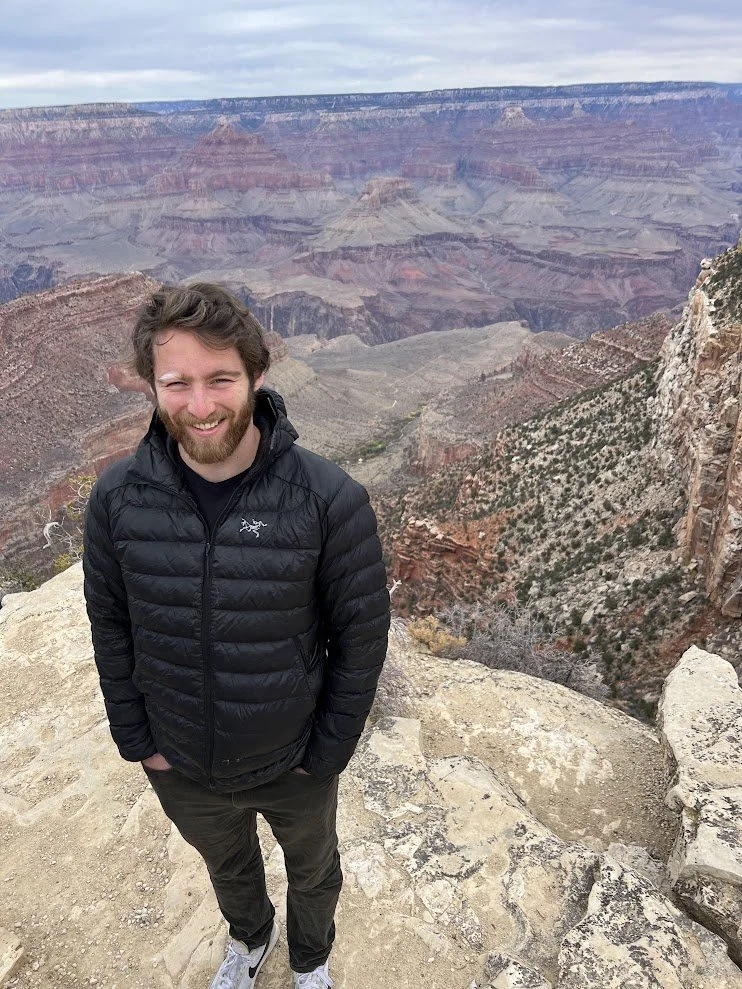1629 K Street NW, Suite 300
Washington, DC 20006 (970) 703-6060
bill@eubankslegal.com
Bar Admissions: DC and NC (active); CO (inactive)
Court Admissions: U.S. Supreme Court; U.S. Courts of Appeal for the First, Second, Fourth, Seventh, Ninth, Tenth, Eleventh, and DC Circuits; U.S. District Courts for the District of Columbia and the District of Colorado
William “Bill” Eubanks opened Eubanks & Associates, PLLC in 2019. Before that, he spent more than a decade at Meyer Glitzenstein & Eubanks LLP, first as an Associate and then as a Partner. Bill has been recognized as a leading public interest environmental lawyer and has won dozens of lawsuits around the country including securing numerous victories on important issues of first impression in federal appellate and trial courts. Among other awards and distinctions, Law360 selected Bill as a 2019 Rising Star in Environmental Law that highlights the top five environmental attorneys in the United States under 40, marking the first time a public interest lawyer received this award. Bill also received the Kerry Rydberg-Jack Tuholske Award for Excellence in Public Interest Environmental Lawyering at the 2023 Public Interest Environmental Law Conference in Oregon, which is the highest recognition in his field.
Bill’s legal specialties include the National Environmental Policy Act, the Clean Water Act, the Administrative Procedure Act, the National Historic Preservation Act, public lands statutes (e.g., Wilderness Act, National Park Service Organic Act, National Forest Management Act, Federal Land Policy and Management Act), wildlife laws (e.g., Endangered Species Act, Bald and Golden Eagle Protection Act, Migratory Bird Treaty Act, Marine Mammal Protection Act, Wild Free Roaming Horses and Burros Act), and open government statutes (e.g., Freedom of Information Act). Bill has also spent more than a decade identifying and addressing cutting-edge environmental justice issues that disproportionately affect BIPOC and other systemically marginalized communities.
In addition to litigation, Bill frequently teaches, lectures, and writes on diverse environmental law and policy topics, and he has spoken at more than forty environmental law conferences. Bill has previously served as an adjunct law professor at the George Washington University Law School, American University’s Washington College of Law, and Vermont Law School. He co-authored and co-edited Food, Agriculture, and Environmental Law, which is the leading treatise analyzing the environmental impacts of our nation's agricultural policy and the application of federal environmental laws to our food production system. Bill’s other publications include Subverting Congress' Intent: The Recent Misapplication of Section 10 of the Endangered Species Act and Its Consequent Impacts on Sensitive Wildlife and Habitat, 42 B.C. Envtl. Aff. L. Rev. 259 (2015); The Future of Federal Farm Policy: Steps for Achieving a More Sustainable Food System, 37 Vt. L. Rev. 957 (2013); The 2013 Farm Bill: An Opportunity for Change, American Bar Association, Natural Resources & Environment (2013); Paying the Farm Bill: How One Statute Has Radically Degraded the Natural Environment and How a Newfound Emphasis on Sustainability Is the Key to Reviving the Ecosystem, 27 Envtl. Forum 56 (July 2010); The Sustainable Farm Bill: A Proposal for Permanent Environmental Change, 39 Envtl. L. Rep. 10493 (2009); Damage Done? The Status of NEPA After Winter v. NRDC and Answers to Lingering Questions Left Open by the Court, 33 Vt. L. Rev. 649 (2009); A Rotten System: Subsidizing Environmental Degradation and Poor Public Health with Our Nation’s Tax Dollars, 28 Stanford Envtl. L. J. 213 (2009); The Clean Air Act’s New Source Review Program: Beneficial to Public Health or Merely a Smoke-and-Mirrors Scheme?, 29 Land Resources & Envtl. L. 361 (2009), reprinted in Energy Conservation and Law 168 (Amicus Books of ICFAI University 2010); Filling the Void: Judicial Analysis of Wildlife Impacts in a Post-Winter World, American Bar Association T.I.P.S., Animal Law Committee (2009); North Carolina’s Durational Residency Requirement for In-State Tuition: Violating the Constitution’s Inherent Right to Travel, 1 Charlotte L. Rev. 199 (2009); The Life-Altering Impacts of Climate Change: The Precipitous Decline of the Northeastern Sugar Maple and the Regional Greenhouse Gas Initiative’s Potential Solution, 17 Penn St. Envtl. L. Rev. 81 (2008), reprinted in 2 Int'l J. of Climate Change: Impacts and Responses 1 (2010); Environmental Justice for All? The Navy’s Recent Failure to Protect North Carolina’s Citizens, 30 N.C. Cent. L. Rev. 206 (2008).
In 2008, Bill obtained his Master of Laws (LL.M.) in Environmental Law, summa cum laude, from Vermont Law School. In 2007, Bill obtained his J.D., magna cum laude, from North Carolina Central University School of Law where he was a member of the Law Review and founding President of the Environmental Law Society. In 2004, Bill obtained his B.A. in United States History and English Literature & Composition from the University of North Carolina at Chapel Hill. His previous legal experience includes clerkships at the Conservation Law Foundation and the Southern Environmental Law Center.
In his spare time, Bill can be found hiking, camping, biking, and exploring forests, mountains, and rivers with his wife and two daughters.




